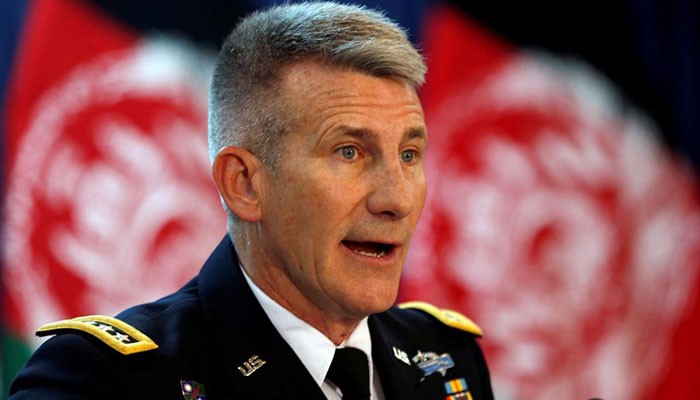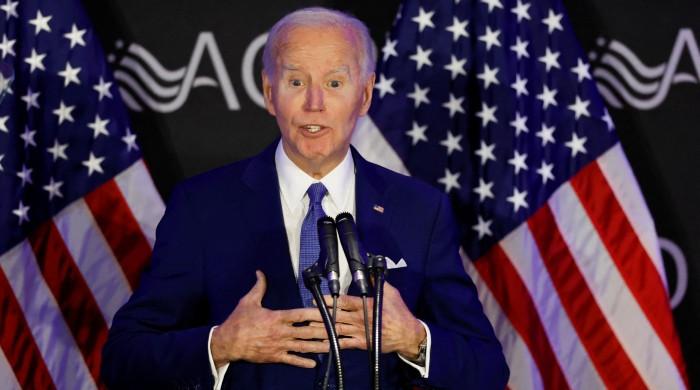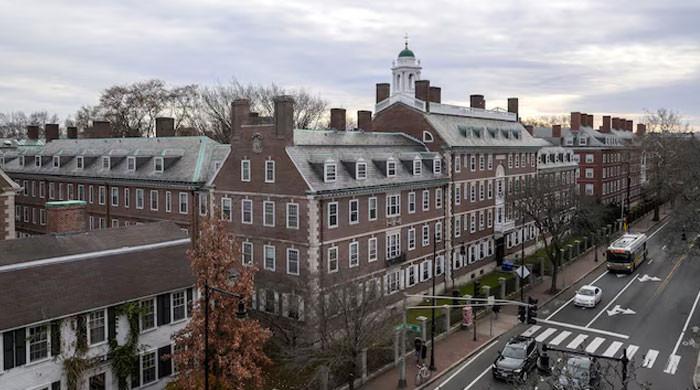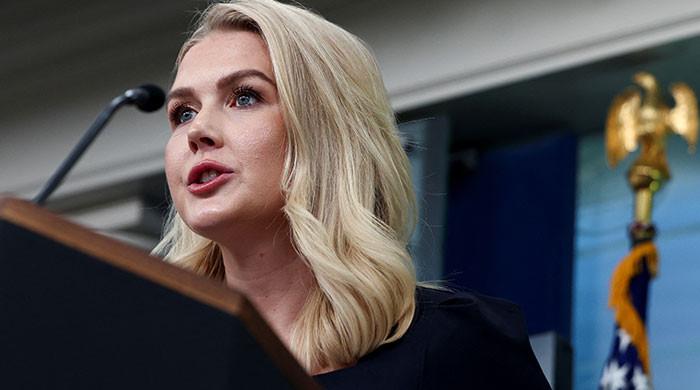Issue of Taliban sanctuaries in Pakistan needs to be addressed: US commander
Gen John Nicholson, in interview to Afghan media outlet, says they are aware of Taliban shuras in Quetta, Peshawar
August 27, 2017
KABUL: The commander of US Forces and NATO in Afghanistan General John Nicholson said on Saturday the US knows the Afghan Taliban leadership resides in Quetta and Peshawar.
In an interview with Afghan media outlet TOLOnews on Saturday evening, Gen Nicholson said the issue of outside sanctuaries has to be addressed but that it was “being addressed in private between the US government and the Pakistani government - but it does need to be addressed.”
“Support for terrorists and insurgents has to be reduced, has to be stopped,” he stressed.
“I am primarily focused on activities inside Afghanistan,” but other officials are looking into the issue of sanctuaries in Pakistan, he said.
According to him, the issue of sanctuaries was a serious one and one that needed to be addressed.
“The Quetta Shura, Peshawar Shura, these shuras are identified by cities inside Pakistan, we know Afghan Taliban leaders are in these areas,” he said.
Specifically asked whether the Taliban leadership in Quetta and Peshawar and other major Pakistan cities “shouldn’t sleep in peace from now on”, he said: “I won’t put words in the (US) president’s mouth but he definitely conveyed this message.”
He said that following US President Donald Trump’s announcement earlier this week on his new war strategy, he, Nicholson, as a commander, has a new policy — “one based on conditions and not time.”
He said: “It gives us additional capabilities. We have a direction now provided by the US policy that is being supported by NATO.”
On the issue of general security in Afghanistan, Nicholson said the “civilian casualties is a real tragedy”.
On whether a diplomatic solution could be found, the general said this was a possibility but that a significant military effort inside the country would be carried out and that together the US would work with the Afghan government to increase its military capabilities.
“The Taliban cause the vast majority of civilian casualties and even though they have stated that it is their objective to reduce civilian casualties they have in fact increased civilian casualties. This is one of the points that we need to put on the table with the Taliban. They are not acting in the best interests of the Afghan people."
“We know the Taliban receives the majority of its financing from narcotics traffic,” he said, adding that the organisation has become a group that brings misery and hardship to the people.
Asked if he sees the Taliban as a terrorist organisation, Nicholson said: “They do terrorist activities and they enable terrorists.”
As an example, he pointed to the Taliban links in the past to al-Qaeda.
On whether he had a mandate to go out and kill the Taliban, Nicholson said: “It is our mandate to put military pressure on the Taliban.
However, he said that the US wants a peaceful solution in Afghanistan but that the “Taliban need to know they cannot win militarily.” He said he hopes they enter the peace process.
“In the meantime, we will put increasing pressure on them inside the country and on the external sanctuaries.”
In terms of developing the military, he said the special forces will be doubled and with the growth of the Afghan air force, the Taliban will lose. He said these special forces’ commandos have never lost a battle against the Taliban and with an expanded force they will retake the majority of territory either outside government’s control or territory that is being contested.
He said as these forces expand their control, coupled with pressure on external sanctuaries, the Taliban will get to a point where it realizes it cannot win militarily and will have to enter into a reconciliation process.
In terms of security leadership and the high turnover of defence and interior ministers, Nicholson said the issue of leadership is an important one but gave credit to Afghan President Ashraf Ghani who changed leaders this summer. Nicholson said however that corruption was still a problem – particularly that relating to fuel contracts and personnel.
By spring of next year every soldier and every police officer will be biometrically registered, he said.
On the fuel contract issue, he said these contracts have been pulled back in under the US forces’ control in order to cut down on corruption.
He said the attorney general’s office was also making progress in terms of cracking down on corruption but that the US forces will keep an eye on this.
He said young leaders were meanwhile emerging — leaders who were energetic and were being taken seriously.
Asked whether he was confident about winning the war, Nicholson said: “I am very focused on my mission here and on delivering for the Afghan people and delivering for my nation and the alliance. I am very encouraged by the new policy by the United States … yes I do feel confident.”













